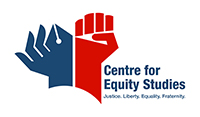Women’s Exclusion from Just Conditions of Work, and the Role of the State
Shikha Sethia, Anamika Lahiri, Rajanya Bose, Radhika Jha, Coen Kompier, Harsh Mander*
Sejal Dand, Sita Mamidipudi**
In the India Exclusion Report 2013–14, we argued that decent work for all is an important public good and that it is the responsibility of the state to ensure equitable access of all persons to conditions of decent work. In this second Exclusion Report, we carry this argument further to underline that just conditions of work for women in particular, and not just of workers in general, is in itself a high-order public good
Living Single
Being A Single Woman in India
Kanchan Gandhi*
Harsh Mander, Agrima Bhasin, Radhika Jha, Sejal Dand**
Dr Ginny Shrivastava, the founder of the National Forum for Single Women’s Rights, notes: ‘Te stories [of single women] are not “nice” stories— they tell of human cruelty, of wicked superstition, of systemic corruption, of age-old cruel caste customs. Women “discarded”, “abandoned”, murdered. But generally, women have survived, and brought up their children, through the sweat and blood of their labour. Tey are strong women, not weak women!’
Devadasis
Cultural Practice or Unacceptable Form of Work?*
Smita Premchander, V. Prameela, Shikha Sethia and Coen Kompier**
The term ‘Devadasi’ is of Sanskrit origin. The women dedicated to temples and men’s entertainmentwere called Devadasis in Karnataka, Joginis or Mathammas in Andhra Pradesh, Mathangi/Murali in Maharashtra, Devaradiar or Dasis in Tamil Nadu and Kudikkars in the Travancore region (Kerala).
Resisting the Margins
Women and Girls with Disabilities in Rural India*
Rhea John, Anita Ghai, Radhika Alkazi, Radhika Jha and Harsh Mander1
I cringe when people tell me they don’t see me as disabled, because before I even get out of bed in the morning, I have to consider at least 20 things that probably never go through the mind of the average able-bodied person. I cringe because accessible transportation and accessible housing are still nearly impossible to fnd. I cringe because my disability makes me more likely to be unemployed, homeless, and the victim of violence. I cringe because when people tell me they don’t see my disability, they are telling me that they don’t see the injustice and inequality that still exists in the world.
Transgenders
Transcending the Binaries: Transgender Exclusions in Law and Policy
Shubha Chacko, Arvind Narrain
Accounts of hijras kidnapping children and
changing their sex are a common folk myth in many parts of India . . . The Mumbai-based Daily News and Analysis quoted Bangalore’s Deputy Commissioner of Police (South) on October 20 (2008) as calling for a ‘drive against the city’s eunuch menace’. ‘Eunuch’ is a widely used derogatory term for hijras.
